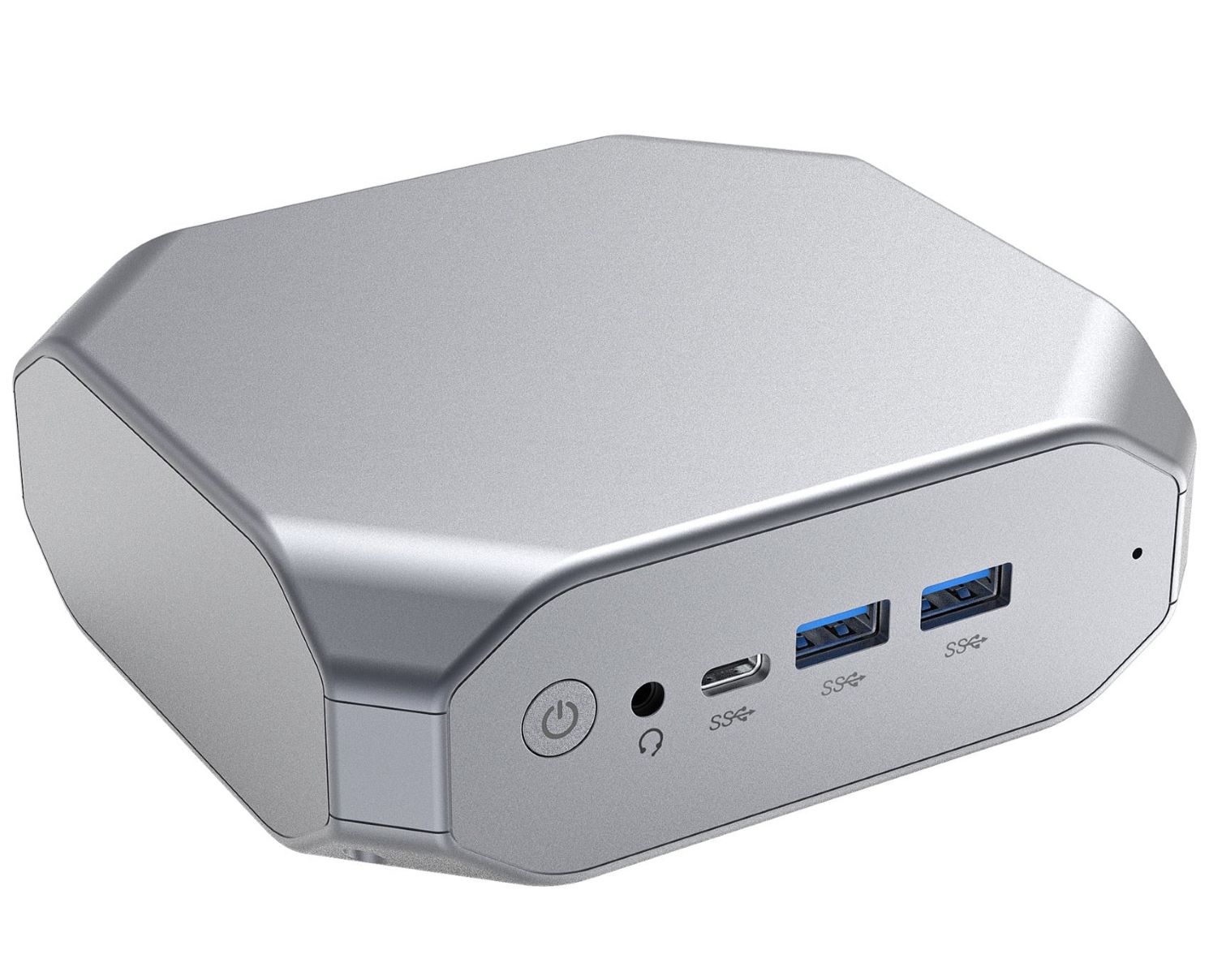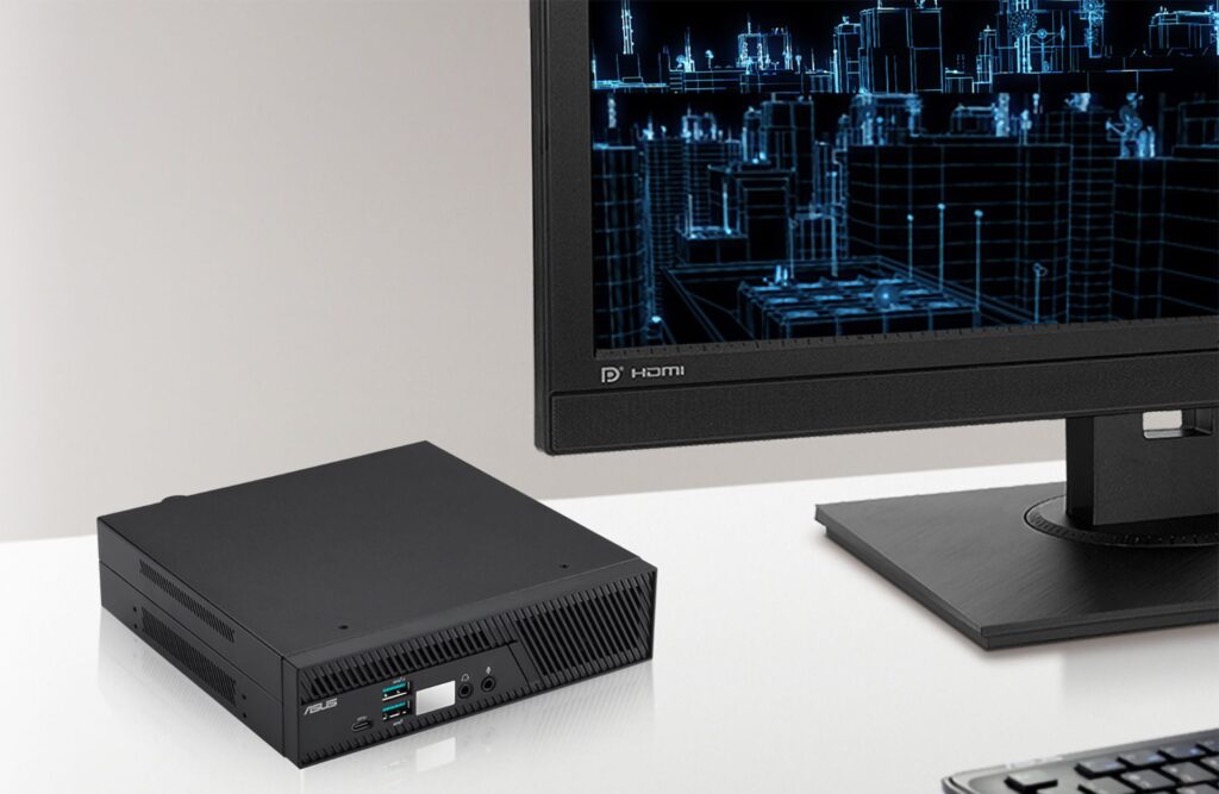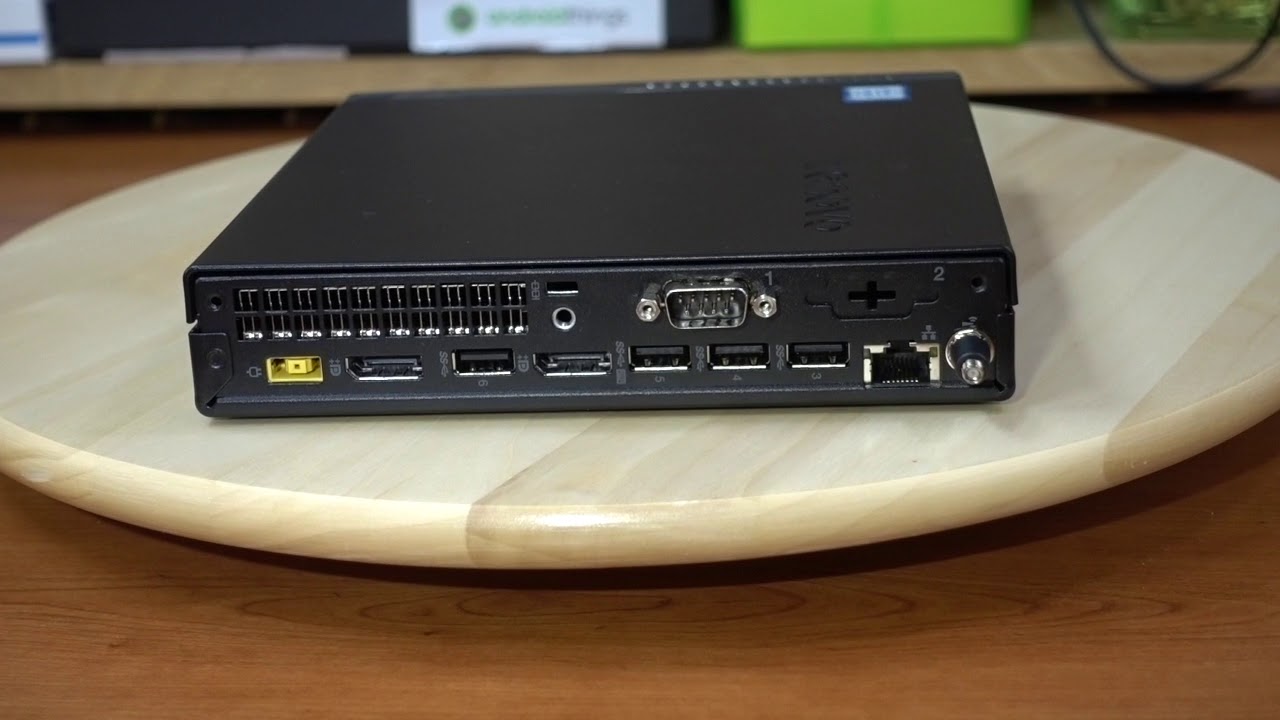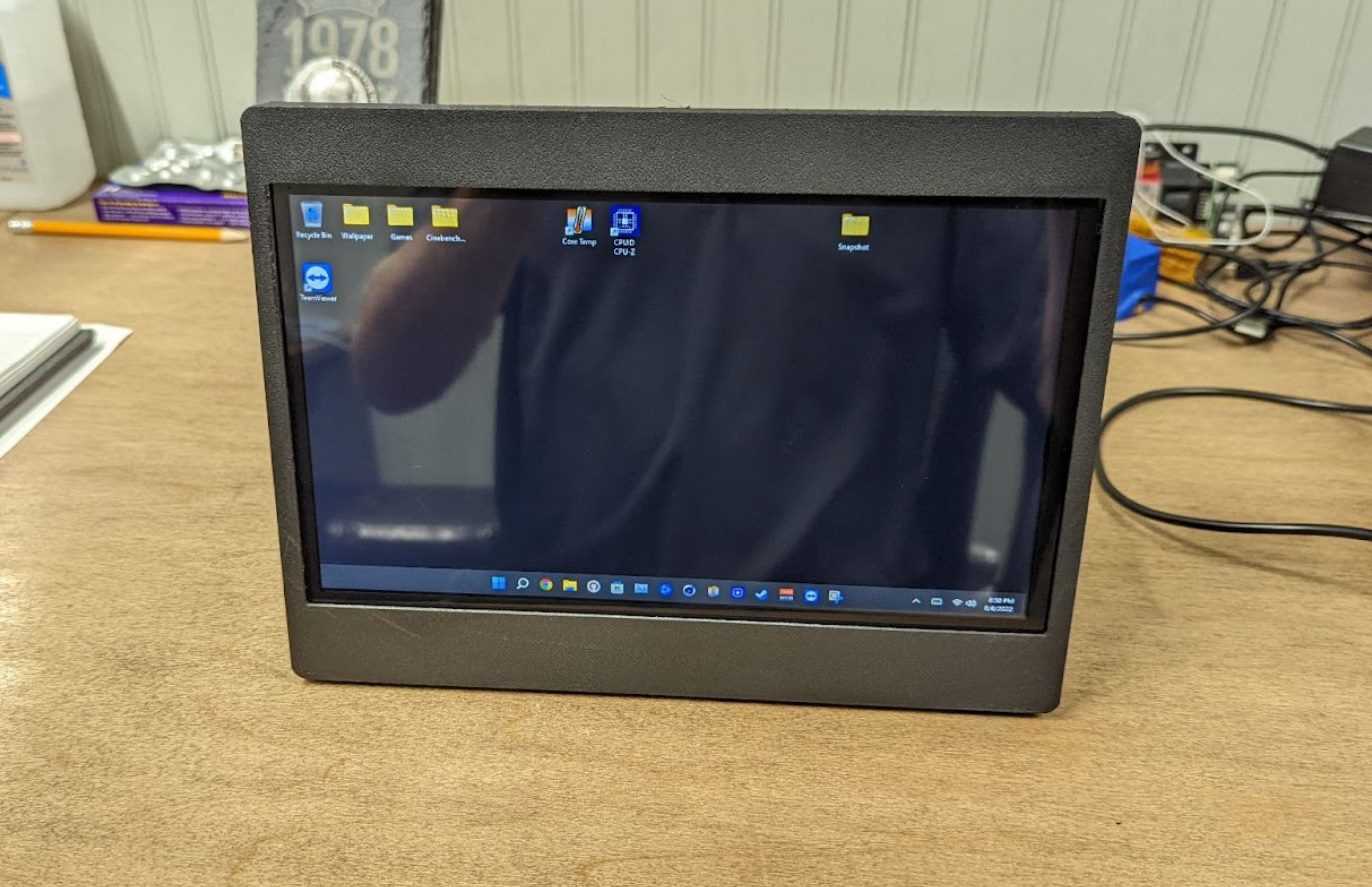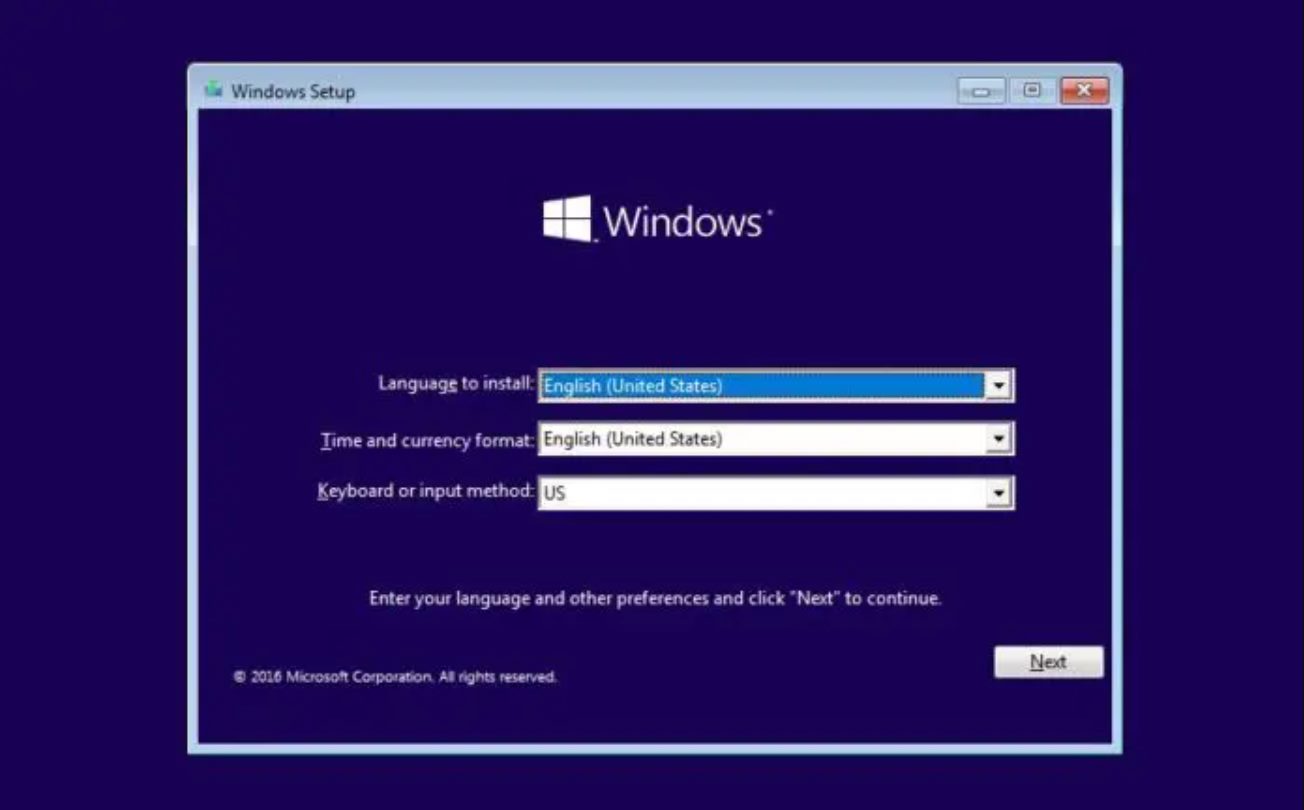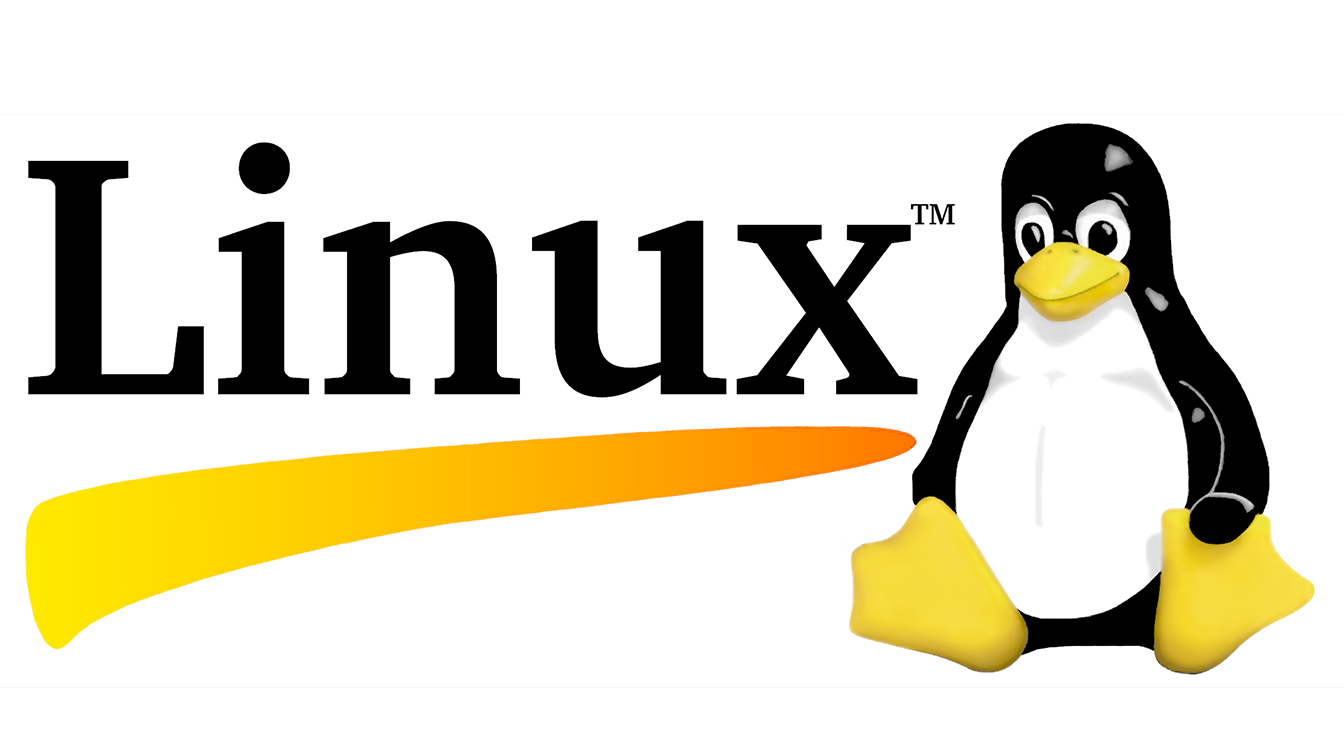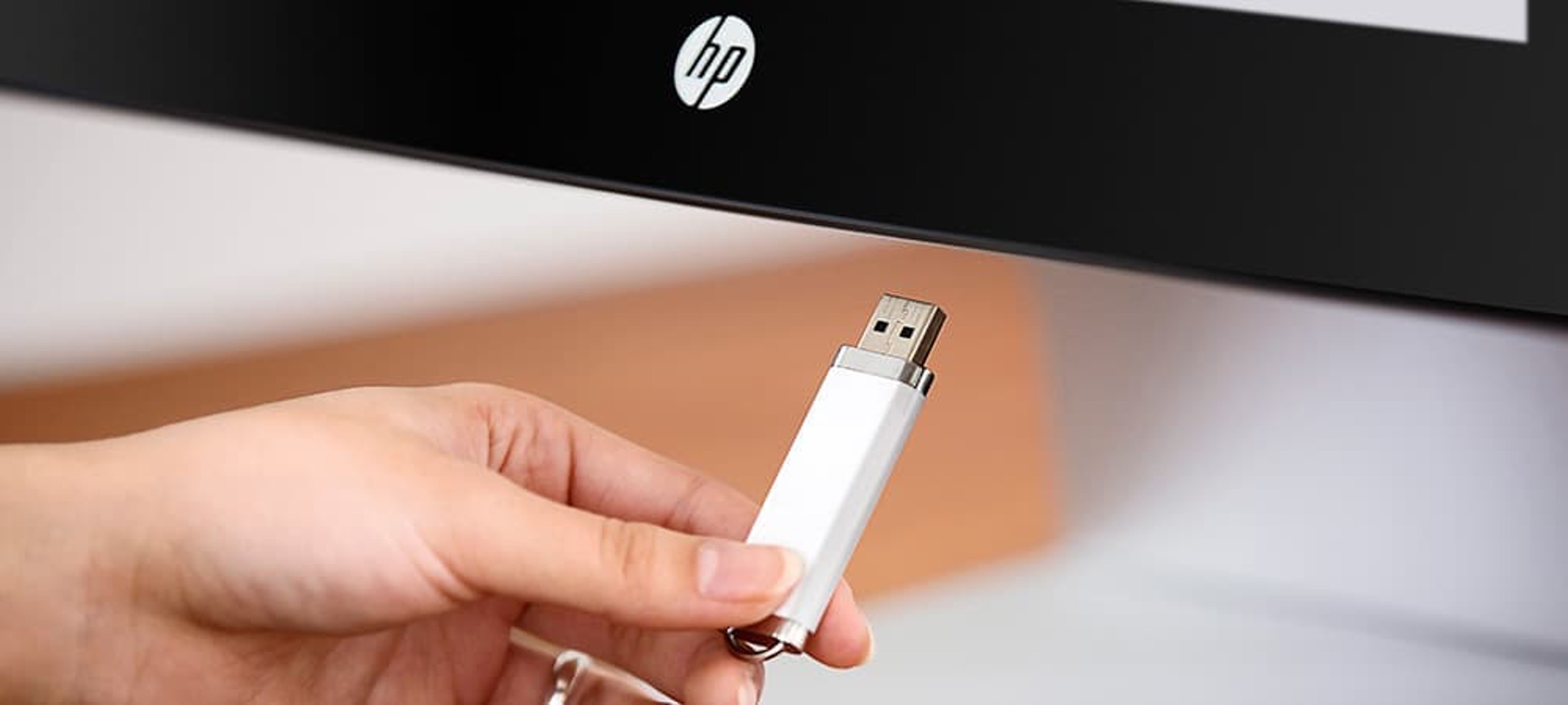Introduction
Welcome to the world of mini PCs! In this digital age, technology continues to evolve, becoming more compact and powerful by the day. Mini PCs, also known as small form factor PCs or SFF PCs, have gained popularity as convenient alternatives to traditional desktop computers. These tiny powerhouses offer impressive performance in a smaller and sleeker package.
Mini PCs are essentially fully functional computers packed into a small form factor. They boast the same capabilities as traditional desktop computers but occupy a fraction of the space. With their compact size and portability, mini PCs have found their way into various settings, both professional and personal.
Whether you’re a student, a professional, or a casual user, mini PCs offer a range of advantages that make them an appealing option. In this article, we will explore the benefits of mini PCs, discuss their common uses, delve into their specifications, compare them to traditional desktops, and highlight the factors to consider when choosing one.
Additionally, we will take a look at some popular mini PC brands, enabling you to make an informed decision when it comes to selecting the right mini PC for your needs.
So, if you’re ready to embark on this journey into the world of mini PCs, let’s dive in and discover the amazing things these pint-sized computers have to offer!
Definition of Mini PC
A mini PC is a compact computer that packs essential components, including a processor, memory, storage, and connectivity, into a small form factor. These computers are designed to provide functionality similar to traditional desktop computers but in a significantly smaller size. While the exact dimensions may vary, mini PCs are typically less than half the size of a regular desktop tower and are often as small as a paperback book.
Mini PCs come in various shapes and designs, ranging from slim and minimalist boxes to compact devices that can be mounted behind a monitor or TV. Despite their small size, these computers offer impressive performance capabilities and can handle a wide range of tasks, including web browsing, document editing, multimedia streaming, and even light gaming.
One of the key distinguishing features of mini PCs is their energy efficiency. Most mini PCs are designed to consume less power compared to traditional desktops, making them environmentally friendly and cost-effective in terms of electricity consumption.
Furthermore, mini PCs typically run on an operating system such as Windows, macOS, or Linux, allowing users to seamlessly navigate and use various software applications, just like on a regular desktop computer.
It is important to note that mini PCs are not to be confused with other compact computing devices such as laptops or tablets. While laptops and tablets have their own advantages, mini PCs offer a unique combination of performance, flexibility, and customization options that make them particularly appealing to certain users and use cases.
Now that we have defined what a mini PC is, let’s move on to explore the advantages they bring to the table and why they are becoming increasingly popular among users.
Advantages of Mini PCs
Mini PCs offer a range of advantages that make them an attractive choice for many users. Here are some key advantages of using a mini PC:
- Space-Saving: The compact size of mini PCs allows them to fit seamlessly into any environment, whether it’s a small apartment, a cluttered desk, or a limited workspace. With their small footprint, mini PCs help you optimize space and keep your area tidy.
- Portability: Mini PCs are lightweight and easy to carry, making them ideal for those who require a portable computing solution. Whether you need to work on the go, set up a temporary office, or bring your computer to different locations, mini PCs offer the freedom to do so.
- Energy Efficiency: Mini PCs are designed to consume less power compared to traditional desktop computers. This not only helps reduce electricity bills but also makes them more environmentally friendly. With the increasing emphasis on sustainability, choosing an energy-efficient mini PC is a smart choice.
- Quiet Operation: Mini PCs often come equipped with efficient cooling systems that keep the internal components cool without the need for loud fans. This results in a quiet computing experience, allowing you to focus on your work or enjoy multimedia content without any distracting background noise.
- Customizability: Despite their small size, mini PCs offer a surprising level of customization options. Some models allow you to upgrade components like RAM, storage, and even processors, giving you the flexibility to tailor the performance of your mini PC according to your specific needs.
- Minimal Cable Clutter: With fewer components and a compact design, mini PCs help reduce cable clutter on your desk or entertainment center. Many mini PCs come equipped with built-in Wi-Fi and Bluetooth capabilities, eliminating the need for additional cables.
These advantages make mini PCs an excellent choice for various applications, from home offices and creative workstations to media centers and digital signage solutions. Now that we’ve explored the advantages, let’s delve into the common uses of mini PCs to better understand their versatility.
Common Uses of Mini PCs
Mini PCs have found their way into a wide range of applications and industries due to their compact size and powerful performance. Here are some common uses of mini PCs:
- Home Office: Mini PCs are perfect for home office setups, providing a space-saving solution for tasks such as word processing, spreadsheet management, email communication, and video conferencing. Their small footprint makes them easy to integrate into any home office environment.
- Media Center: Mini PCs can be transformed into versatile media centers, offering a convenient way to stream videos, music, and online content. With HDMI outputs, they can be connected directly to TVs or monitors, allowing you to enjoy your favorite entertainment right from your living room.
- Education: Mini PCs are increasingly being used in educational institutions, providing students and teachers with a compact and portable computing solution. They can handle tasks such as research, online learning, multimedia presentations, and collaborative projects.
- Digital Signage: Mini PCs are ideal for digital signage displays in retail stores, restaurants, and public spaces. Their small form factor allows them to be discreetly mounted behind screens, providing a powerful and unobtrusive media playback solution.
- Gaming: While mini PCs may not offer the same level of gaming performance as high-end gaming desktops, they can handle casual gaming and less demanding titles. With their small size and portability, mini PCs can provide a convenient gaming solution for those on the move.
- Home Theater PC (HTPC): Mini PCs can serve as HTPCs, capable of delivering high-quality multimedia experiences to your TV or home theater setup. With their compact design and multimedia capabilities, they can handle media playback, streaming, and even act as a central hub for your entertainment system.
These are just a few examples of the versatile applications of mini PCs. From fulfilling basic computing needs to serving specialized purposes in various industries, mini PCs offer a flexible and powerful solution that can be tailored to a wide range of use cases.
Now that we have explored the common uses of mini PCs, let’s delve into the specifications of these compact computers to understand what makes them tick.
Specifications of Mini PCs
Despite their small size, mini PCs come equipped with impressive specifications that allow them to deliver reliable performance. Here are some key specifications to consider when choosing a mini PC:
- Processor: The processor, or CPU, is the brain of the computer. Mini PCs generally feature processors from Intel or AMD, with varying levels of performance. It’s important to consider the power and speed of the processor, as it determines the overall computing capabilities of the mini PC.
- Memory: Also known as RAM, memory plays a vital role in multitasking and running applications smoothly. The amount of memory determines how many tasks and programs can be handled simultaneously. Most mini PCs come with 4GB to 16GB of RAM, but higher-end models may offer even more.
- Storage: Mini PCs offer various storage options, including solid-state drives (SSD) and hard disk drives (HDD). SSDs are faster and more reliable, whereas HDDs provide more storage capacity at a lower cost. It’s important to consider your storage needs and preferences when selecting a mini PC.
- Graphics: Some mini PCs come with integrated graphics, while others have dedicated graphics cards for enhanced visual performance. If you plan to use your mini PC for graphic-intensive tasks such as gaming or video editing, opting for a model with dedicated graphics can provide a smoother and more immersive experience.
- Connectivity: Mini PCs typically offer a range of connectivity options, such as USB ports, HDMI outputs, audio jacks, Ethernet connectivity, and Wi-Fi. It’s important to assess your connectivity needs to ensure that the mini PC has the necessary ports and wireless capabilities to support your peripherals and devices.
- Operating System: Mini PCs usually come with pre-installed operating systems such as Windows, macOS, or Linux. Consider your familiarity with different operating systems and choose the one that aligns with your preferences and software requirements.
- Expansion Slots: Some mini PCs have expansion slots that allow you to add additional components or upgrade existing ones, such as adding more RAM or additional storage. If you foresee the need for future upgrades, selecting a mini PC with expansion options can be beneficial.
These specifications provide a framework for evaluating the capabilities of mini PCs. However, it’s important to consider your specific needs and use cases when comparing various models. Each individual’s requirements may vary, so it’s essential to find a mini PC that strikes the right balance between specifications, performance, and price.
Now that we have explored the specifications of mini PCs, let’s move on to comparing these compact computers with traditional desktops.
Comparison between Mini PCs and Traditional Desktops
When it comes to choosing a computer, you have two main options: mini PCs and traditional desktops. Both have their advantages and considerations. Here’s a comparison to help you understand the differences between these two:
Size and Form Factor: Mini PCs are significantly smaller and more compact compared to traditional desktops. They take up less space on your desk or workstation, making them a great choice for those with limited space or who prefer a minimalist setup.
Portability: Mini PCs offer superior portability compared to traditional desktops. Their compact size and lightweight design make them easy to transport and set up in different locations. On the other hand, traditional desktops are stationary and require a dedicated space.
Performance: Traditional desktops generally offer more powerful hardware components, including processors, graphics cards, and more RAM options. They are better suited for resource-intensive tasks such as gaming, video editing, and 3D rendering. Mini PCs, while still capable of handling everyday tasks, may have limitations in terms of performance due to their smaller size and power-efficient components.
Customization and Upgradability: Traditional desktops provide more options for customization and upgradability. You have the freedom to swap out components, such as graphics cards, hard drives, and RAM, to meet your specific requirements. Mini PCs, although some models offer limited upgradability, often have components that are not user-replaceable due to their compact design.
Energy Efficiency: Mini PCs are known for their energy efficiency, consuming less power compared to traditional desktops. This leads to lower electricity bills and a reduced carbon footprint. Traditional desktops, on the other hand, may consume more power due to their more powerful components.
Cost: Mini PCs generally have a lower upfront cost compared to traditional desktops. They offer a more budget-friendly option for those who need a basic computer without the need for high-performance hardware. Traditional desktops, with their higher-end components and customization options, can be more expensive.
Expandability: Traditional desktops typically offer more expansion slots and bays, allowing for easy installation of additional storage devices, optical drives, and other peripherals. Mini PCs, due to their smaller size, may have limited expansion options.
Ultimately, the choice between a mini PC and a traditional desktop depends on your specific needs, space constraints, budget, and required performance. If you prioritize portability and space-saving, along with basic computing tasks, a mini PC may be the ideal choice. On the other hand, if you require top-tier performance, extensive customization options, and expandability, a traditional desktop might be more suitable.
Now that we have compared the two options, let’s move on to discussing the factors to consider when choosing a mini PC.
Factors to Consider When Choosing a Mini PC
Choosing the right mini PC can be a daunting task, considering the wide range of options available in the market. To help you make an informed decision, here are some important factors to consider when choosing a mini PC:
Intended Use: Determine the primary purpose of the mini PC. Are you planning to use it for general tasks like web browsing and office work, or do you need it for more demanding applications like photo/video editing or gaming? Understanding your intended use will help you identify the necessary specifications and performance capabilities.
Processor: The processor is the heart of any computer, including mini PCs. Consider the power and speed of the processor based on your computing needs. An Intel Core i3 or AMD Ryzen 3 processor is usually sufficient for most everyday tasks, while a higher-end processor like an Intel Core i7 or AMD Ryzen 7 is more suited for demanding applications.
Memory (RAM): The amount of memory impacts the computer’s multitasking abilities and overall performance. A minimum of 8GB RAM is recommended for smooth multitasking and seamless performance. If you plan to run resource-intensive applications or perform heavy multitasking, consider opting for 16GB or more.
Storage: Choose the right storage option based on your needs. Solid-state drives (SSDs) offer faster boot times, quicker application loading, and overall snappier performance. If you require more storage capacity for storing files, documents, and media, consider a mini PC with a larger capacity hard disk drive (HDD) or a combination of SSD and HDD.
Graphics: Evaluate the graphics capabilities of the mini PC, especially if you plan to use it for gaming, graphic design, or video editing. Integrated graphics may suffice for basic tasks, but a dedicated graphics card will provide a significant boost in performance for graphics-intensive applications.
Connectivity: Assess your connectivity needs and ensure that the mini PC has the necessary ports and wireless capabilities. Look for essential ports such as USB, HDMI, Ethernet, and audio jacks. Wi-Fi and Bluetooth connectivity are also important features to consider, especially if you plan to connect wireless peripherals or devices.
Operating System: Consider the operating system that comes pre-installed on the mini PC. Windows, macOS, and Linux are the common options. Choose an operating system that you are comfortable with and that supports the software applications you need to use.
Brand and Customer Support: Research and consider reputable mini PC brands that offer good customer support and warranties. Opting for a reliable brand can ensure better product quality and post-purchase assistance if needed.
Reviews and Recommendations: Read customer reviews and seek recommendations from trusted sources to gather insights on the mini PC’s performance, build quality, and overall user experience. This will help you make a more informed decision.
By considering these factors, you can narrow down your options and find a mini PC that aligns with your needs and preferences. Take your time to research and compare different models to ensure that you make the right choice when purchasing a mini PC.
Now that we’ve explored the factors to consider, let’s move on to discussing some popular mini PC brands that you can consider.
Popular Mini PC Brands
When it comes to purchasing a mini PC, there are several reputable brands that offer high-quality and reliable options. Here are some popular mini PC brands to consider:
Intel NUC: Intel NUC (Next Unit of Computing) is a well-known brand in the mini PC market. They offer a range of compact and powerful mini PCs with various configurations to suit different needs. Intel NUCs are known for their reliable performance, energy efficiency, and expandability options.
ASUS: ASUS is a renowned brand that offers a diverse lineup of mini PCs. From compact stick PCs to sleek and innovative models, ASUS mini PCs feature powerful processors, ample storage options, and a strong focus on performance. They are well-regarded for their durability and user-friendly designs.
Lenovo: Lenovo is a trusted name in the computer industry, and their mini PCs are no exception. Lenovo mini PCs offer a blend of performance, versatility, and space-saving designs. With their reliable build quality and customization options, Lenovo mini PCs are suitable for a range of uses, from office workstations to multimedia centers.
HP: HP offers a wide range of mini PCs that cater to various needs and budgets. Their mini PCs are known for their compact size, noiseless operation, and reliability. HP focuses on delivering solid performance, seamless connectivity, and user-friendly designs, making them a popular choice among individuals and businesses.
Dell: Dell is a well-established brand known for its quality and user-centric designs. Their mini PCs are highly regarded for their performance, reliability, and excellent customer support. Dell offers a range of customization options, allowing users to choose the specifications that best meet their needs and preferences.
GIGABYTE: GIGABYTE is a respected brand in the gaming and high-performance computing industry. Their mini PCs, often referred to as BRIX, combine compact form factors with powerful hardware components. GIGABYTE mini PCs are favored by gamers and enthusiasts who require top-tier performance in a smaller footprint.
These are just a few examples of popular mini PC brands. Other notable brands to consider include Zotac, MSI, Acer, and Apple. It’s important to research and read customer reviews to find the best fit for your specific requirements.
Now that we’ve explored popular mini PC brands, you have a better idea of reputable options available in the market. Let’s conclude this article by summarizing the key points we’ve covered.
Conclusion
Mini PCs have emerged as a compelling alternative to traditional desktop computers, offering a range of advantages in a compact and portable form factor. Whether you’re looking to save space, enhance portability, or enjoy energy-efficient computing, mini PCs provide a versatile solution for various use cases.
In this article, we defined mini PCs as small form factor computers that deliver the functionality of traditional desktops in a smaller size. We explored their advantages, including space-saving design, portability, energy efficiency, quiet operation, customizability, and minimal cable clutter.
We also discussed common uses for mini PCs, such as home offices, media centers, education, digital signage, gaming, and home theater setups. These pint-sized powerhouses offer versatility and adaptability for a wide range of applications.
When choosing a mini PC, specifications play a vital role. We examined important factors such as the processor, memory, storage, graphics, connectivity, operating system, and expandability. By considering these factors, you can identify a mini PC that meets your computing needs.
In addition, we compared mini PCs with traditional desktops, highlighting notable differences in size, portability, performance, customization, energy efficiency, cost, and expandability. This comparison allows you to assess which option best suits your requirements.
To further assist you in the decision-making process, we provided an overview of popular mini PC brands, including Intel NUC, ASUS, Lenovo, HP, Dell, and GIGABYTE. These brands are recognized for their craftsmanship, performance, reliability, and customer support.
In conclusion, mini PCs have revolutionized the computer industry with their compact size and impressive capabilities. Whether you need a space-saving solution for your home office, a portable media center, or a versatile computing device, mini PCs offer a modern and efficient option. By evaluating your specific needs, considering the important factors, and exploring reputable brands, you can find the perfect mini PC to enhance your digital experience.









